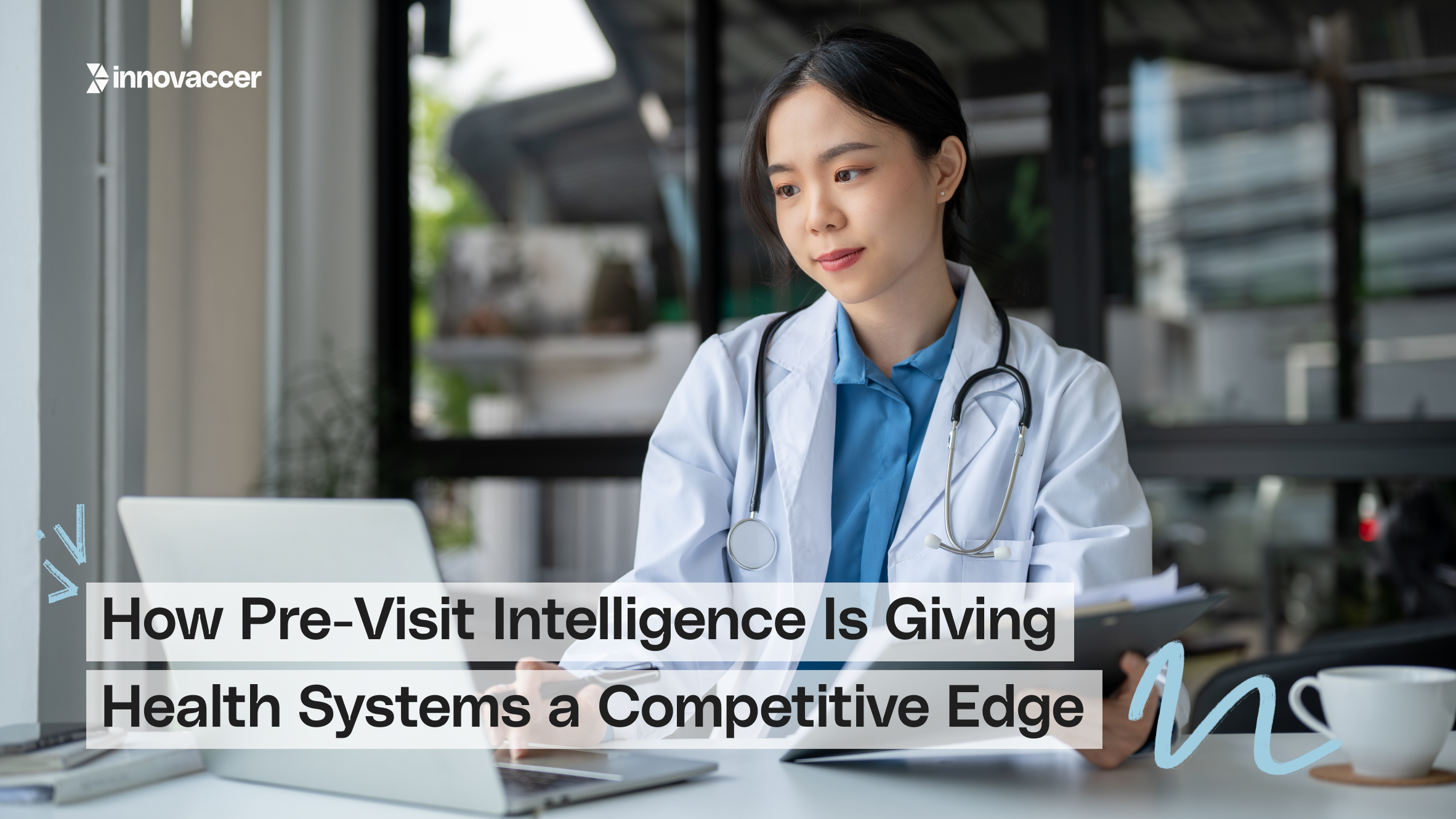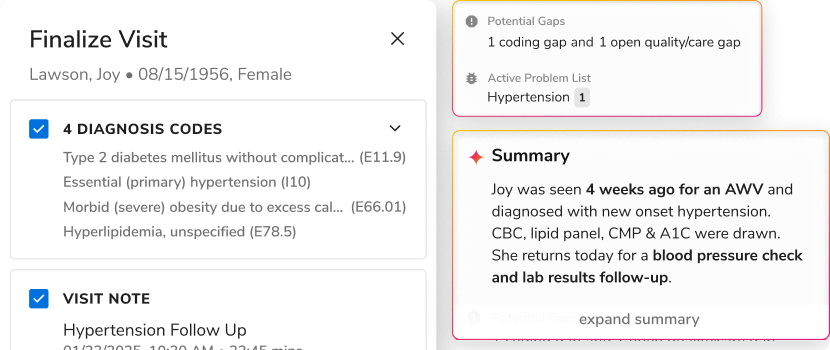How Pre-Visit Intelligence Is Giving Health Systems a Competitive Edge


Providers are drowning in data. Before each patient visit, providers spend precious time digging through medical records. They hunt for lab results. They check past visit details. They try to piece together a complete picture of each patient's health before they visit.
This prep work takes a lot of time because healthcare systems store patient information in different places. Lab results live in one system. Imaging reports sit in another. Previous visit notes are scattered across multiple platforms.
For years, pre-visit preparation has flown under the radar as a major source of provider frustration and system waste. Doctors are expected to deliver high-quality care, but are often left working with fragmented patient data spread across systems. Incomplete documentation, outdated notes, and lack of context make it harder to diagnose accurately and act quickly. And with value-based care raising the stakes, these gaps can directly affect quality scores, patient outcomes, and claims reimbursement.
The truth is simple: if a provider can’t see the full picture before the visit, they’re already at a disadvantage.
Innovacer’s pre visit summary feature solves the problem of this fragmented approach. The fragmented approach wastes time and causes a series of ripple effects:
- Time consumption: Preparing for a patient visit often takes far more time than most people realize. Providers typically spend 5 to 10 minutes just logging into different systems and navigating through various interfaces. Then comes another 10 to 15 minutes reading through past visit notes, followed by 5 to 10 minutes reviewing recent test results. Finally, they spend an additional 5 to 10 minutes trying to piece everything together into a coherent picture. What should be a simple prep task ends up taking 20 to 30 minutes per patient.
- The Ripple Effect: This extended preparation time creates a ripple effect across the entire clinic or hospital day. Appointments start late, patients end up waiting longer, and the entire schedule begins to fall behind. Providers feel rushed and overwhelmed, increasing the risk of burnout. In the rush to catch up, important clinical details can be missed, potentially impacting diagnosis and care quality.

This is why the fragmented data problem isn't just an inconvenience, it's a significant barrier to efficient, high-quality healthcare delivery.
The Power of AI-Curated Summaries by Innovaccer
Innovaccer's Pre-Visit Summary solution uses artificial intelligence (AI) to create actionable patient summaries. It pulls together:
- Patient history and previous complaints
- Current medications and allergies
- Risk factors and chronic conditions
- Recent test results and imaging
- Upcoming care needs
Moreover, the AI doesn't just dump information. It organizes it smartly. It highlights what's most important for each specific visit. It gives doctors the context they need to provide better care.
The Competitive Advantage
Hospitals using pre-visit intelligence can experience clear advantages, such as:
- Faster Patient Flow: When doctors come prepared, visits run on time. Patients spend less time waiting. More patients can be seen each day.
- Better Diagnostic Accuracy: Complete patient information leads to better diagnoses. Doctors catch problems they might have missed before.
- Improved Patient Satisfaction: Patients notice when their doctor knows their history. They feel heard and understood. They trust providers who seem well-informed about their care.
- Reduced Provider Burnout: Less time spent on paperwork means more time for patient care. Doctors feel more confident and less stressed.
Looking Ahead
Many healthcare organizations are quietly adopting pre-visit intelligence. They're not making big announcements. They're simply getting better results.
While their competitors struggle with fragmented data, these forward-thinking hospitals are delivering faster, more personalized care. They're building stronger patient relationships. They're operating more efficiently.
Pre-visit intelligence isn't just a nice-to-have feature anymore. It's becoming essential for competitive healthcare delivery.
Patients expect their doctors to know their history. They want personalized care. They want efficiency. Healthcare organizations that can't deliver these expectations will fall behind.
The hospitals that embrace pre-visit intelligence now will have a significant advantage. They'll provide better care. They'll operate more efficiently. They'll build stronger patient loyalty.
Conclusion
Healthcare is becoming more complex every day. Patient data continues to grow. Provider time remains limited. Innovaccer’s Pre-visit intelligence offers a solution. It helps providers work smarter, not harder. It improves patient care while reducing provider stress.
Smart healthcare leaders are already making their choice. They're investing in tools that give their providers the information they need. They're building systems that support both efficiency and quality care.
The competitive advantage of pre-visit intelligence is real. It's measurable. And it's available right now.
While pre-visit prep may not be the flashiest part of care delivery, it’s quickly becoming one of the most strategic. Organizations that invest in smarter workflows today are setting themselves up to deliver better care tomorrow.
And with tools like Innovaccer’s Pre-Visit Summary, that future is already within reach. Book a demo now!

.png)





.png)









.svg)
.svg)

.svg)

